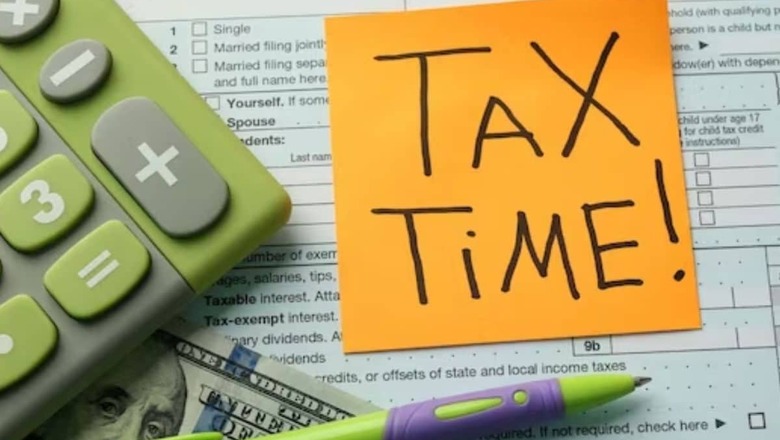
views
ITR Filing 2023: Income tax deductions are specific expenses or allowances that taxpayers can claim to reduce their taxable income, thereby lowering their overall tax liability. These deductions are provided under various sections of the Income Tax Act, and taxpayers are eligible to claim them based on their individual circumstances and the nature of their expenses.
Deductions in income tax return are expenses that you can claim to reduce your taxable income. There are many different types of deductions available. To claim deductions in your income tax return, you will need to keep proof of your expenses. The IT department can ask the same if needed for any clarification. This proof may include receipts, invoices, or other documentation. However, while filing the ITR, you are not required to send/upload the documents.
Also Read: Income Tax Refund Made Easy: Step-By-Step Guide To Check Your Tax Refund Status Online
Amit Gupta, MD at SAG Infotech, shared that the tax regime introduced under the Union Budget 2023-24 provides individuals with the option to choose between lower tax rates and limited deductions or higher tax rates and multiple deductions and exemptions.
Under the new tax regime, several exemptions and deductions are not claimable by individuals.
Gupta said these include Standard Deductions under Section 80TTA and Section 80TTB, and various deductions under Section 80C, 80D, 80E, 80CCC, 80CCD, 80DD, 80DDB, 80EE, 80EEA, and 80G of Chapter VI-A of IT Act. Additionally, allowances like Professional Tax, Entertainment Allowance, House Rent Allowance (HRA), Leave Travel Allowance (LTA), and Child Education Allowance are not eligible for deductions. Contributions to NPS accounts, donations to political parties or trusts, and interest on self-occupied or vacant property loans are also excluded.
Also Read: Have You Checked AIS App Before ITR Filing? Here’s How It May Help You
However, the new tax regime does offer certain exemptions and deductions.
These include Transport Allowances for Persons with Disabilities (PwD), Conveyance Allowance, Travel/Tour/Transfer Compensation, and Perquisites for Official Purposes. Additionally, exemptions for Voluntary Retirement Scheme, Gratuity Amount, Leave Encashment, Interest on Home Loan for Lent-out Property, gifts up to Rs. 5,000, and Employer’s Contributions to Employees NPS Accounts can still be claimed.
For businesses, Gupta highlighted there are several deductions, which are not available under the new tax regime. These include Additional Depreciation, Investment Allowance, Sector-wise Deductions, Expenditure on Research & Development, Expenses on Capital Expansion, and Exemptions for Units in SEZ.
A comparison between the deductions available under the old and new tax regimes for FY 2023-24 shows that the new regime does not allow deductions for Employment/Professional Tax, House Rent Allowance (HRA), and Exemptions for Free Food & Beverages through Vouchers/Food Coupons, Gupta pointed out.
Additionally, deductions for investments under Section 80C, 80CCC, 80CCD, 80DD, 80DDB, 80E, 80EE, 80EEA, and 80G, as well as Medical Insurance Premium and Interest on Home Loan for Self-Occupied/Vacant Property, are not available in the new tax regime.
Gupta added that taxpayers must carefully evaluate their financial goals and circumstances to choose between the old and new tax regimes. The new regime offers lower tax rates but limits deductions and exemptions, while the old regime has higher tax rates but provides various deductions and exemptions. Selecting the appropriate tax regime can significantly impact an individual’s tax liability and financial planning.
Moreover, the amount of deduction you can claim is limited to the maximum amount specified for each deduction. You can only claim deductions for expenses that you have actually incurred. One must have the necessary documentation to support your claims and claim deductions in the correct year.
If you are unsure about whether you can claim a deduction or how to claim it, you should consult with a tax advisor.
ITR Filing Last Date 2023
The last date to file all income tax returns except ITR-6 for the assessment year 2023-24 (FY 2022-23) without a late fee is July 31, 2023.




















Comments
0 comment